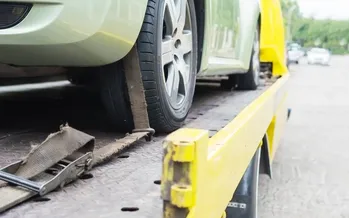I. Introduction
Imagine signing a car lease with the best intentions, only to find yourself facing unexpected financial hardships or life changes that make it impossible to keep up with your payments. If you're in this situation, don't panic - there are ways to get out of a car lease early without facing crippling penalties. In this article, we'll explore three strategies for breaking a lease early and getting back on track.
From negotiating with the leasing company to transferring the lease to another person or surrendering the vehicle back to the dealer, there are several ways to navigate an early lease termination. In this article, we'll cover each option in detail, so you can choose the one that's best for your unique circumstances.
II. Understanding Your Lease Agreement
A. Reviewing the contract
The first step in breaking a car lease early is to review your lease agreement carefully. Look for any early termination fees or penalties, as well as mileage limits and other important terms. Take note of how many miles you've driven so far, as exceeding the limit can result in additional charges. Understanding what you're up against will help you prepare a strategy for getting out of your lease without facing excessive fees.
B. Checking state laws
It's also important to familiarize yourself with any state laws that might impact your early lease termination. Some states have laws in place to protect consumers from overly burdensome penalties or fees, while others may have restrictions on how and when a lease can be broken. Be sure to do your research and understand what protections (if any) are available in your area.
III. Negotiating with the Leasing Company
A. Contacting the company
If you're struggling to make payments or facing other unforeseen circumstances, it's worth reaching out to your leasing company to see if they're willing to work with you. Explain your situation and ask if there's any way to waive some or all of the early termination fees in exchange for taking over the remaining lease payments. Be prepared to provide proof of your financial hardship, such as medical bills or job loss documents, to strengthen your case.
B. Offering a solution:
Another strategy for negotiating with the leasing company is to offer a solution that benefits both parties. For example, you could suggest finding another person to take over the lease in exchange for a reduced early termination fee. This can save the leasing company the cost of repossession and advertising for a new vehicle, while also providing you with some financial relief.
IV. Transferring the Lease to Another Person
A. Finding a buyer
If you're interested in transferring your lease to another person, the first step is to find someone who's already familiar with leasing contracts and terms. Look for potential buyers on online marketplaces or social media groups, or ask friends and family if they know anyone who might be interested. Be sure to check the buyer's credit score and financial history before finalizing the transfer, as this will help you avoid any future issues or complications.
B. Working out terms
When working out terms with a potential buyer, it's important to discuss all outstanding fees and penalties upfront. Make sure both parties understand what they'll be responsible for and how much they'll need to pay in order to transfer the lease. You should also clarify any other important details, such as the return date and mileage limit, to avoid any misunderstandings down the road."
V. Surrendering the Car Back to the Leasing Company
A. Checking policy:
If you decide to surrender your leased vehicle back to the dealer early, be sure to check their policy for early lease returns. Some dealers may have specific requirements or fees associated with surrendering a car before the end of the lease term, so it's important to understand what you're up against.
B. Calculating remaining payments
Before surrendering your car back to the leasing company, be sure to calculate any remaining payments and fees based on how long you've had the vehicle and the final mileage. This will help you avoid any surprises or unexpected costs once the car is officially returned."
FAQ Section
Q: Can I end my car lease early without any penalties?
A: Unfortunately, most car leases come with penalty fees for ending the agreement before the end of the term. The amount of these fees can vary depending on factors such as the remaining mileage, the condition of the vehicle, and how long is left in the lease. Some leases may also have an early termination clause that allows you to pay a lump sum to get out of the agreement, but this is not standard practice for all leases.
Q: How can I lower the penalty fees for ending my car lease early?
A: There are a few ways to potentially lower the penalties associated with early termination:
- Negotiate with the dealership - Before you make a decision, contact the dealer and try negotiating with them. Explain your situation and see if they're willing to work with you on reducing the fees or finding another solution that works for both parties.
- Transfer the lease - If you can find someone else who is willing to take over your lease payments and obligations, this could help you avoid having to pay the early termination fee altogether. Just make sure the other person's creditworthiness is good enough to qualify for the lease.
- Roll over the lease into a new one - If you're currently in a lease that's close to expiring, you might be able to roll it over into a new one instead of ending it early. This could help you avoid some of the penalties associated with early termination, but be aware that this will likely come with its own fees and conditions.
Q: What happens if I return my leased car with more miles than allowed?
A: If you exceed the mileage limit specified in your lease agreement, you'll typically be charged a penalty per mile over the limit. The exact fee will depend on the terms of your lease and the dealership's policies, but it can add up quickly if you go significantly over the limit. To avoid this penalty, make sure you accurately estimate how many miles you'll be driving during the lease term and choose a plan that reflects that.
Q: Can I modify my leased car?
A: It depends on the terms of your lease agreement. Some deals will allow you to make certain modifications, while others might prohibit any changes at all. Be sure to read through the fine print carefully before signing the lease and understand what kind of alterations (if any) are allowed. If you're not sure about a specific modification, it's always best to check with your dealership first to avoid any misunderstandings or disputes later on.
Q: Is it possible to extend my leased car's term? If so, how does it affect the monthly payments and total cost of the lease?
A: Yes, it is possible to extend a leased car's term. This option is called a lease extension or lease renewal. When you choose this option, your monthly payments will typically be lower because you're spreading out the remaining balance over a longer period of time. However, you may also end up paying more overall for the car due to additional interest and fees that accrue during the extended term. Be sure to weigh the potential benefits and drawbacks before deciding whether an extension is right for your situation.
Q: Can I transfer my leased car to someone else mid-lease? If so, what are the requirements and restrictions?
A: Yes, it's possible to transfer a leased car to another person, also known as a lease assignment or sublet. However, not all lease agreements allow for transfers, and there may be certain requirements and restrictions in place. For example, the new lessee might need to meet specific credit and income criteria, and you might be responsible for paying a transfer fee or penalty for breaking the original lease contract early. It's important to check with your dealership or leasing company before attempting a transfer to ensure that it's an option that's available and feasible under your particular circumstances.
Q: What happens if I exceed the mileage limit on my leased car? Will I be charged extra fees?
A: Yes, most lease agreements come with a predetermined annual mileage limit. If you exceed this limit, you may be subject to additional charges called excess mileage fees or over-mileage penalties. These fees can vary widely depending on the leasing company and the specific terms of your agreement, so it's essential to understand the potential consequences of going over the mileage threshold before signing the lease contract. Some lease agreements offer mileage packages that allow you to pay a flat fee for additional miles or roll them into the total price of the lease, which may be more cost-effective than paying per-mile penalties as they accrue.
VI. Conclusion
In summary, breaking a car lease early doesn't have to be a stressful or expensive process. By reviewing your lease agreement carefully, negotiating with the leasing company, transferring the lease to another person, or surrendering the vehicle back to the dealer, you can find a solution that works for your unique circumstances. Remember to always prioritize honesty and communication throughout the process, as this will help you avoid any misunderstandings or complications down the road.
If you're struggling with your car lease and aren't sure where to turn, it may be worth consulting a financial advisor or legal professional for additional guidance. They can provide personalized advice based on your specific situation and help you make an informed decision about your next steps.











